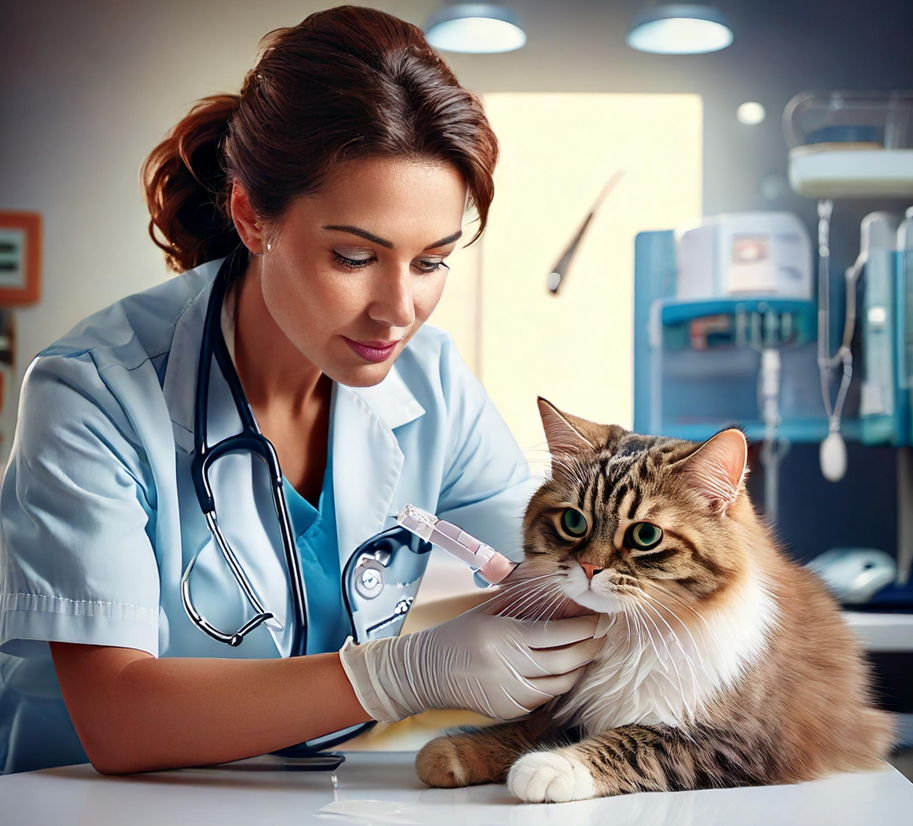Essential Vaccines for Cats: A Complete Guide

Vaccinating your cat is one of the most important steps in ensuring its health and well-being. In this guide, we will explore the essential vaccines for cats, why they are important, and how often they should be administered. Let’s ensure your feline companion stays healthy for years to come!
Why Are Vaccines Important for Cats?
Vaccines protect your cat against potentially fatal diseases. They strengthen your cat’s immune system, preventing the spread of contagious infections. Even if your cat stays indoors, it can still be exposed to certain viruses or germs. That’s why following a regular vaccination schedule is key.
Essential Vaccines for Cats
1. Feline Panleukopenia (Distemper)
Panleukopenia is a dangerous viral disease that affects the blood cells. It’s highly contagious and can be fatal. All cats, whether indoor or outdoor, need this vaccine.
Frequency:
- First dose: 8 weeks
- Booster shot: 12 weeks, then every 3 years
Learn more about Feline Panleukopenia here.
2. Feline Herpesvirus and Calicivirus (Upper Respiratory Diseases)
These viruses cause respiratory problems like sneezing, nasal discharge, and mouth ulcers. They are some of the most common feline respiratory infections.
Frequency:
- First dose: 8 weeks
- Booster shot: 12 weeks, then annually or every 3 years, depending on your cat’s lifestyle
Find out how to manage cat respiratory issues here.
3. Rabies Vaccine (Required in Some Regions)
Rabies is fatal and can be transmitted to humans. It is often required by law if you travel with your cat or live in regions where rabies is common.
Frequency:
- First dose: 12 weeks
- Booster shot: Annually or every 3 years, depending on the vaccine used
Check with your local regulations on rabies vaccines.
4. Feline Leukemia Virus (FeLV) Vaccine
FeLV weakens the immune system and is contagious through close contact. Outdoor cats or those in multi-cat households are especially at risk.
Frequency:
- First dose: 8 weeks
- Booster shot: 12 weeks, then annually
Recommended Vaccination Schedule for Kittens
- 8 weeks: First vaccinations (Panleukopenia, Herpesvirus, Calicivirus, FeLV if needed)
- 12 weeks: Booster shots for vaccines administered at 8 weeks + Rabies vaccine (if required)
- 16 weeks: Final booster shots, if necessary
- Annually: Annual vaccines (Herpesvirus, Calicivirus, and FeLV, depending on your cat’s risk)
Do Indoor Cats Need Vaccines?
Yes! Even if your cat never leaves the house, it’s still important to vaccinate them. Many of these viruses can be transmitted indirectly through human clothing or shared spaces. Rabies vaccination may be required by law in certain areas or if you plan to travel.
Tips for Keeping Your Cat’s Vaccines Up to Date
- Regular Vet Visits: Speak with your vet to ensure your cat is on track with vaccinations and boosters.
- Keep Records: Document each vaccination and booster shot in your cat’s health record.
- Don’t Miss Booster Shots: Timely vaccines help protect your cat from infections.
Conclusion
Vaccinating your cat is an essential part of pet care. By sticking to a recommended vaccination schedule, you’re safeguarding your cat against serious, preventable diseases. For more information, consult your veterinarian to develop a tailored vaccination plan for your cat.
